In 2016, Washington University in St. Louis broke new ground, made new discoveries and welcomed another debate — the fifth in university history. Here, we run down 10 stories that captured our attention in 2016.
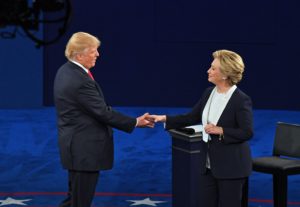
As the eyes of the world turned to the 2016 U.S. presidential election, Washington University played a prominent role in the national political conversation by hosting a presidential debate Oct. 9. The occasion marked the fifth Commission on Presidential Debates event held on campus (including a vice presidential matchup). The university also had prepared to host a debate in 1996, but it was canceled.
As more states legalize marijuana, adolescents’ problems with pot decline
Genetically modified Golden Rice falls short on lifesaving promises
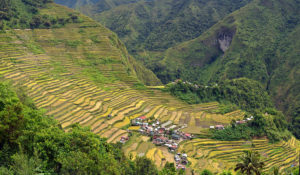
Heralded on the cover of Time magazine in 2000 as a genetically modified (GMO) crop with the potential to save millions of lives in the Third World, Golden Rice is still years away from field introduction and, even then, may fall short of lofty health benefits still cited regularly by GMO advocates, a study from Arts & Sciences suggests.
Obituary: Sarah Longyear, sophomore, 19
Sophomore Sarah Longyear died by suicide April 22, 2016, in her hometown of Palo Alto, Calif. She was 19. Longyear’s advisers remembered her as a kind and curious student who excelled academically but struggled with depression. Longyear was on medical leave when she died.
Record Missouri flooding was manmade calamity, scientist says
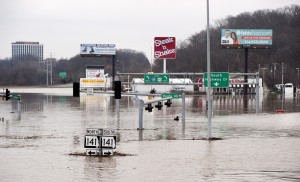
While extraordinary rain drenched the entire Meramec Basin in late December 2015, only 5 percent of the Mississippi River’s giant watershed above St. Louis was so affected. Yet only a day after the flood on the lower Meramec peaked, water levels on the Mississippi at St. Louis were the third-highest ever recorded. A few days later, record flood stages were recorded downstream at Cape Girardeau, Mo., and Thebes, Ill.
Why was the flooding so bad? Most news reports blamed it on the heavy rain, but Robert Criss, professor of earth and planetary sciences in Arts & Sciences, said there was more to the flood than the rain.
When Doug Wiens approached Minnesota farmers to ask permission to install a seismometer on their land, he often got a puzzled look. “You could tell they were thinking ‘Why are you putting a seismometer here?,’ ” said Wiens, professor of earth and planetary sciences. “‘We don’t have earthquakes and we don’t have volcanoes. Do you know something we don’t?’ ”
Actually, he did. Deep beneath the fertile flat farmland, there is a huge scar in the Earth called the Midcontinent Rift.
Americans recognize ‘past presidents’ who never were, study finds
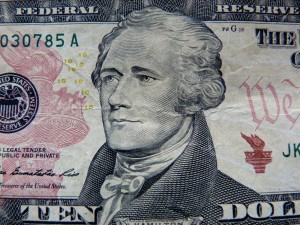
Ask Americans to name the former U.S. president whose face graces the U.S. $10 bill and most will be quick to answer Alexander Hamilton.
Sure, it’s a trick question. But a study from university memory researchers confirms that most Americans are confident that Hamilton was once president of the United States.
Measurements of an element in Earth and moon rocks have just disproved the leading hypotheses for the origin of the moon.
Tiny differences in the segregation of the isotopes of potassium between the moon and Earth were hidden below the detection limits of analytical techniques until recently. But in 2015, Washington University geochemist Kun Wang, then the Harvard Origins of Life Initiative Prize postdoctoral fellow, and Stein Jacobsen, professor of geochemistry at Harvard University, developed a technique for analyzing these isotopes that can hit precisions 10 times better than the best previous method.
The university hosted a debate for the fifth time in October. Here, we look back at our past debates.
Designs shared for east end of Danforth Campus
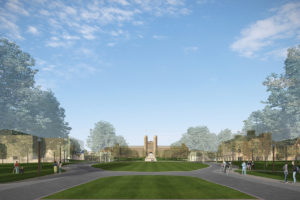
Chancellor Mark S. Wrighton shared plans for the transformation of the east end of the Danforth Campus with the Board of Trustees during its Oct. 7 meeting. He presented designs for the seven major components of the undertaking — two new academic buildings, an expansion of the Mildred Lane Kemper Art Museum, two new multiuse facilities, an underground parking garage and an expansive new Central Green.
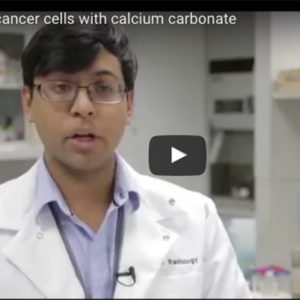
Comments and respectful dialogue are encouraged, but content will be moderated. Please, no personal attacks, obscenity or profanity, selling of commercial products, or endorsements of political candidates or positions. We reserve the right to remove any inappropriate comments. We also cannot address individual medical concerns or provide medical advice in this forum.